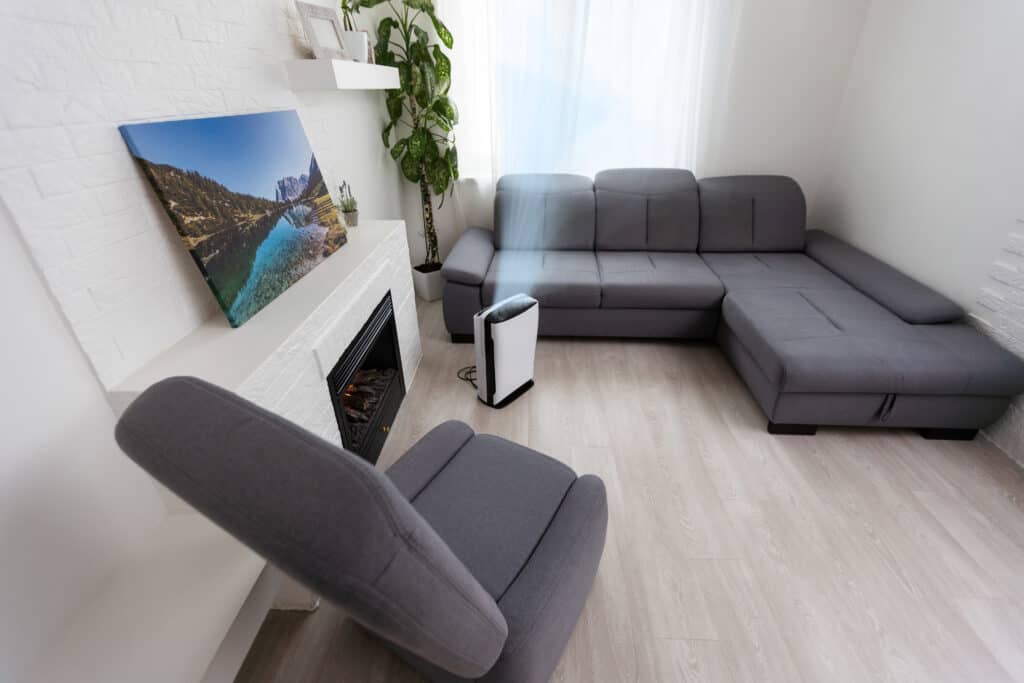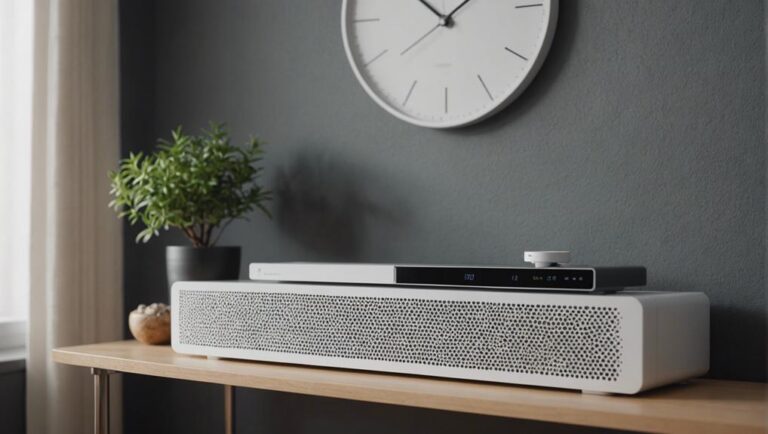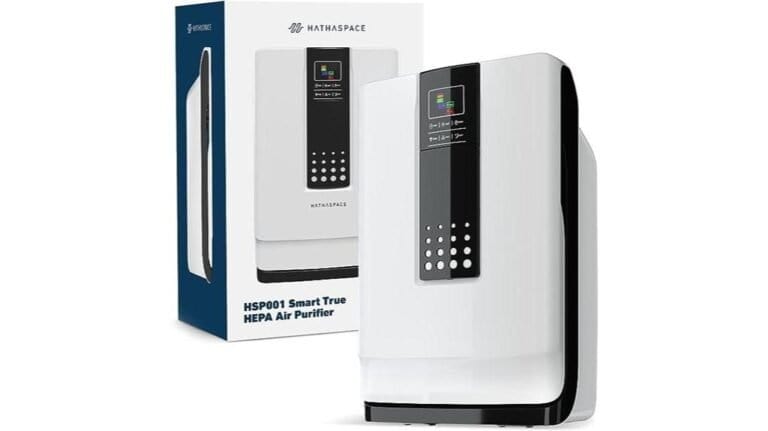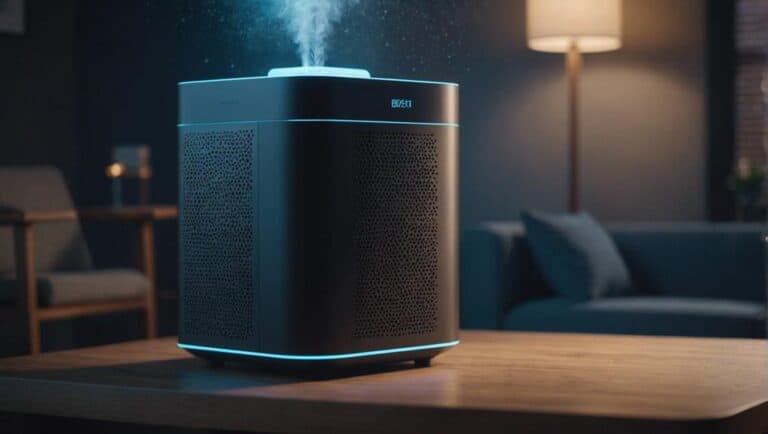Uncovering the Truth About Air Purifiers and Dust: Does It Really Make a Difference?
Most of us are aware that dust can cause various health issues and can make our living spaces feel uncomfortable, but is an air purifier really the answer?
In this article, we’ll be taking a close look at the truth behind air purifiers and dust to uncover whether they really can make a difference. We’ll explore the ways that air purifiers work to reduce dust and review the research to evaluate how effective they can be.
Finally, we’ll provide advice for anyone looking to buy an air purifier and how to make sure it works to its fullest benefit. So, if you’re looking to find out if an air purifier can really help with dust, read on to uncover the truth.
What Is Dust and How Can It Affect Our Health?
Dust is made up of a variety of tiny particles that are present in the air, including pollen, mold spores, pet hair, and fibers from clothing and furniture. It can worsen allergies, asthma, and other respiratory conditions.
It can also cause irritation to the eyes, nose, and throat. Dust is especially problematic for those with weakened immune systems, as dust can contain viruses and bacteria.
An air purifier can be helpful in reducing the amount of dust in your home. Air purifiers work by capturing dust particles in a filter, trapping them in its fibers and preventing them from entering the air again.
Some air purifiers also work to reduce particles in the air by using ozone or other chemical agents. The effectiveness of air purifiers varies depending on the type of filter it uses and the size of the room. Research suggests that air purifiers can be effective at reducing dust levels in the home, but that the effectiveness can vary significantly depending on the type of filter used.
When buying an air purifier, it’s important to look for models that use HEPA filters, which are the most effective at trapping and removing dust particles. Additionally, an air purifier should be placed in the room where dust is most likely to accumulate or where people spend the most time.
It’s also wise to regularly replace air purifier filters to ensure the device is working at its best. With the right air purifier and regular maintenance, it’s possible to reduce dust levels and keep your home clean and healthy.

How Do Air Purifiers Work To Reduce Dust?
Air purifiers work by using a combination of filters to remove dust and other impurities from the air. The first filter usually traps larger particles, such as pollen and pet dander. The second filter, usually a HEPA filter, traps smaller particles such as dust, smoke, and other airborne particles.
The final filter is designed to absorb odors and gases. As the air passes through these filters, the dust, impurities, and odors are trapped and removed from the air.
The research surrounding air purifiers and dust is mixed, with some studies showing that air purifiers can significantly reduce dust levels in the home, while other studies suggest the impact is much more limited.
Ultimately, the effectiveness of an air purifier depends on the type, size, and maintenance of the unit. When purchasing an air purifier, it’s important to pick one that is the right size for the room and to follow the manufacturer’s guidelines for maintenance and filter changes. With the right air purifier, it is possible to reduce dust levels in the home and improve air quality.
The Research: Do Air Purifiers Actually Reduce Dust?
The air purifier is an appliance that is becoming increasingly popular for those who want to improve the air quality in their home. Many people believe that air purifiers can help reduce dust and other allergens, but is there evidence to back up this claim? This article will explore the research on the effectiveness of air purifiers in reducing dust and help you decide whether or not to invest in one.
First, we’ll discuss how air purifiers work. They use a combination of filters and a fan to draw air in, trapping airborne allergens in the process. This helps to reduce the amount of dust in the air and can even reduce odors when activated charcoal filters are used. It’s important to note that an air purifier won’t completely eliminate dust from your home, but it can help reduce the amount present.
Next, we’ll look at the research on the effectiveness of air purifiers in reducing dust. Studies have shown that air purifiers can reduce dust levels in the air by up to 75%, making them a great option for those who suffer from dust allergies or allergies to other airborne particles. Additionally, air purifiers can help reduce other allergens such as pollen, pet dander, and mold spores.
In conclusion, the research shows that air purifiers can help reduce dust levels in the home and can be a great option for those with allergies. However, it’s important to choose an air purifier that is right for your space and to regularly change the filters to keep them working effectively.

Benefits of Using an Air Purifier
An air purifier is a device that removes dust, pollen, pet dander and other airborne particles from the air. It can be used to improve indoor air quality and help with allergies, asthma and other respiratory issues.
A high quality air purifier can help reduce the amount of dust and other particles in the air. It works by drawing air in and using filters to trap dust and other contaminants, before releasing the clean air back into the room. Some air purifiers also use a process called ionization, which helps to trap even the smallest particles, such as pollen and smoke.
Research has shown that air purifiers can be effective in reducing the levels of dust and other particles in a room, as well as improving air quality and reducing allergens. Air purifiers are especially helpful for those with allergies or asthma, as they can reduce symptoms by removing irritants from the air. Additionally, air purifiers can help improve sleep quality by removing airborne pollutants and allergens that can disrupt sleep.
Tips for Buying an Air Purifier
Air purifiers are a popular choice for reducing dust and air pollution in the home. But do they actually work? The answer is yes, air purifiers have been proven to be effective at improving air quality and reducing dust levels. In fact, a recent study by the Environmental Protection Agency found that air purifiers can reduce the amount of dust in a room by up to 90%.
So, how do air purifiers reduce dust? Generally, air purifiers work to reduce dust particles by trapping them in a filter before releasing the now-cleaner air back into the room. This filtration process works to improve air quality and reduce dust in the air, as well as other allergens and pollutants. However, it’s important to note that not all air purifiers are created equal, so it’s important to do your research and choose one that fits your needs.
For anyone looking to buy an air purifier, there are some key tips to keep in mind. Firstly, look for an air purifier with a high-efficiency particulate arrestor (HEPA) filter, as this is the most effective type of filter for trapping dust particles.
Additionally, make sure the air purifier is the right size for the room, as too small a model won’t be able to filter the air properly. Finally, be sure to change the filter regularly as this will help maintain the air purifier’s effectiveness at capturing dust particles.
Conclusion: Is an Air Purifier Worth It?
At the end of the day, the decision of whether or not to invest in an air purifier is entirely up to you. There is no definitive answer as to whether air purifiers are worth the money, as it depends on the individual and their situation.
If you suffer from dust-related allergies or asthma, then it may be well worth investing in an air purifier to help reduce your symptoms. However, for those who don’t suffer from dust-related allergies or don’t have a particularly dusty home, it may not be necessary to buy an air purifier to reduce dust levels.
Overall, air purifiers can be a great tool for reducing dust in the home, but they may not be necessary for everyone. Try to determine your individual needs and whether or not an air purifier can make a significant difference in your home before investing in one.
When it comes to dust control, it’s important to focus on other aspects of home maintenance as well, such as regularly changing the filters in the home’s air conditioning system and vacuuming and dusting regularly.







2 Comments